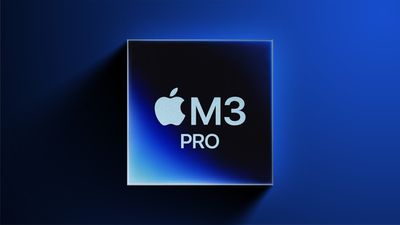Apple's new M3 Pro chip with a 12-core CPU offers only marginally faster CPU performance compared to the M2 Pro chip with a 12-core CPU, according to a Geekbench 6 result spotted today by Vadim Yuryev, co-host of the YouTube channel Max Tech. This is only a single benchmark result, so further results are needed to ensure accuracy.

Apple announced new 14-inch and 16-inch MacBook Pro models with M3, M3 Pro, and M3 Max chips on Monday. This benchmark result appears to be for the 14-inch model, based on the "Mac15,6" model identifier listed.
The result shows the M3 Pro has a single-core score of 3,035 and a multi-core score of 15,173. If these scores are accurate, the M3 Pro is up to 14% faster than the M2 Pro in terms of single-core performance, but only up to 6% faster in terms of multi-core performance for the most demanding tasks and workflows.
Both the M2 Pro and M3 Pro are equipped with up to a 12-core CPU, but the M3 Pro has only six high-performance cores and six efficiency cores, while the M2 Pro has eight high-performance cores and four efficiency cores. So while the M3 Pro is manufactured with TSMC's 3nm process, compared to 5nm for the M2 Pro, the chip's resulting performance gains are diminished due to it having two fewer performance cores. The M3 Pro also has 25% less memory bandwidth and one fewer GPU core compared to the M2 Pro.
By limiting the M3 Pro's number of high-performance cores, Apple has created more differentiation between the M3 Pro and the M3 Max, which has up to 12 high-performance cores. However, as a result, the M3 Pro is only marginally faster than the M2 Pro.
Geekbench 6 results from earlier this week showed that the M3 Max is up to 45% faster than the M2 Max, while the standard M3 chip is up to 20% faster than the standard M2 chip, so the M3 Pro is by far the least improved chip of the series. Of course, the M3 Pro is still a significant upgrade for those coming from an Intel-based Mac. M3 Pro is also up to 20% faster than the M1 Pro chip, which is a decent improvement.
As always, benchmarks provide a useful reference point, but real-world performance can vary.
The new MacBook Pro models are available to order now, and M3 and M3 Pro configurations will begin arriving to customers and launch in stores on Tuesday, November 7. M3 Max configurations will launch a few days later.























